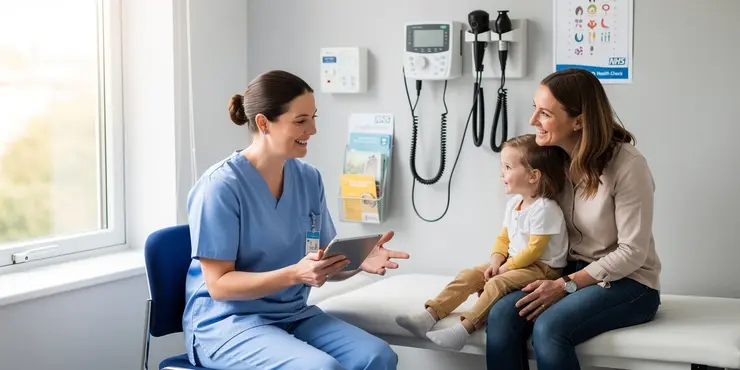
Find Help
More Items From Ergsy search
-
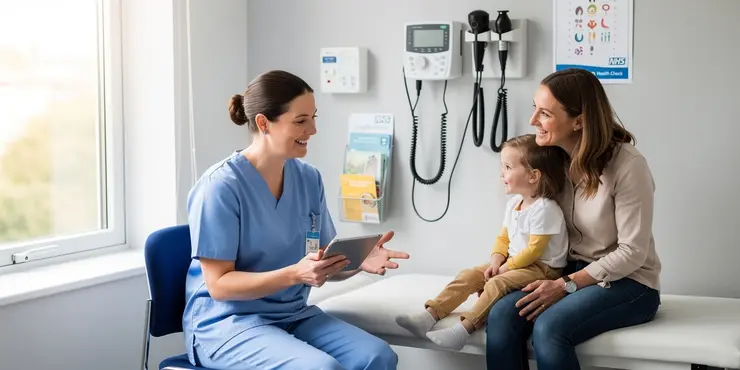
Preventative Care: What Your Family Needs
Relevance: 100%
-

Child Care Proceedings | Family Law
Relevance: 63%
-
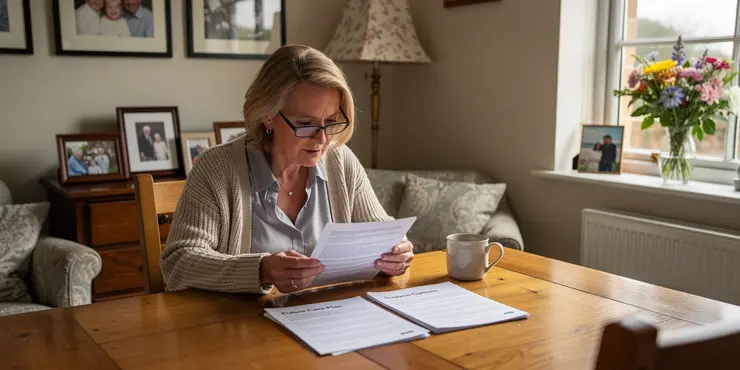
How can I plan for future care needs?
Relevance: 63%
-
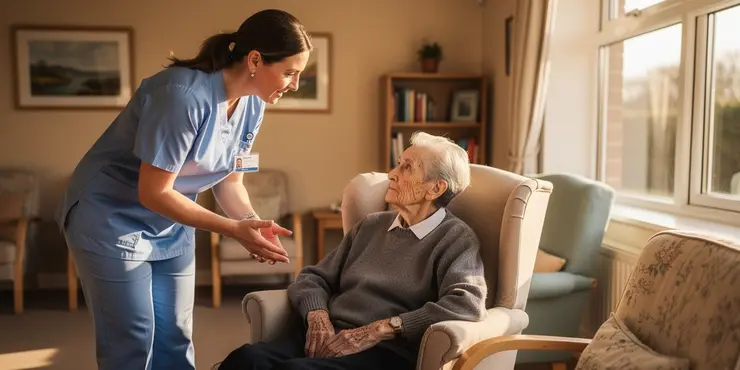
What happens if a resident's care needs change?
Relevance: 60%
-
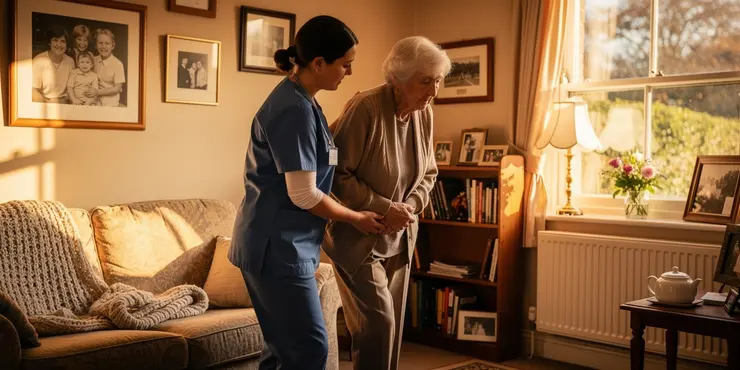
What should families look for in a live-in care agency?
Relevance: 59%
-

Are dietary needs accommodated in care homes?
Relevance: 58%
-
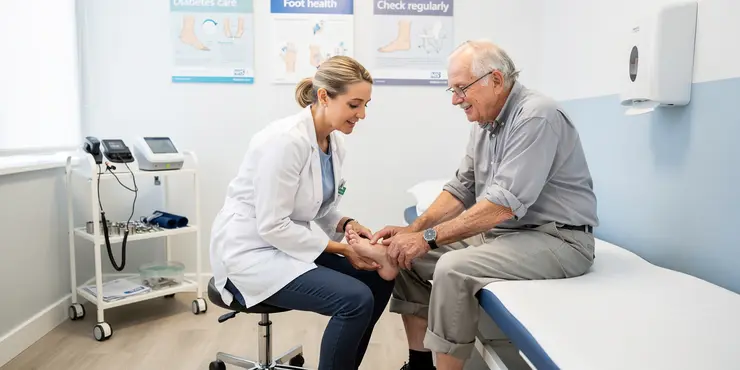
Diabetes Care - Preventing Amputations
Relevance: 57%
-
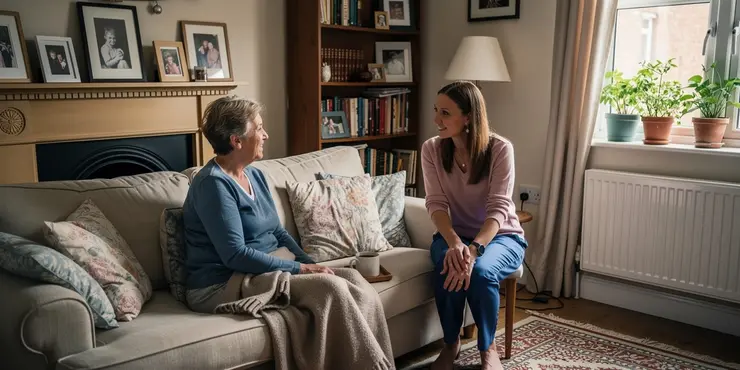
Is live-in care available for short-term needs?
Relevance: 57%
-
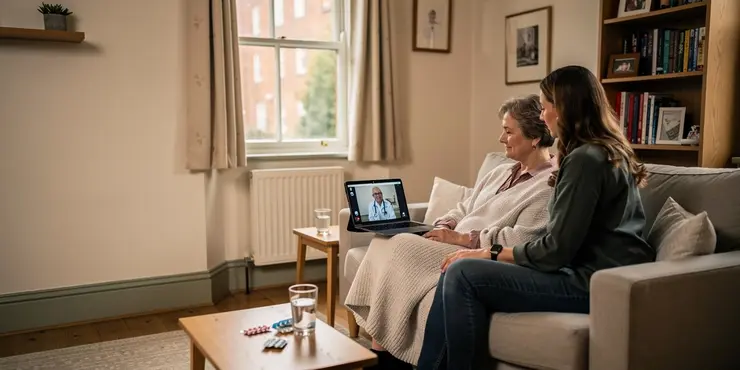
Can family members be involved in the care process on a virtual ward?
Relevance: 56%
-
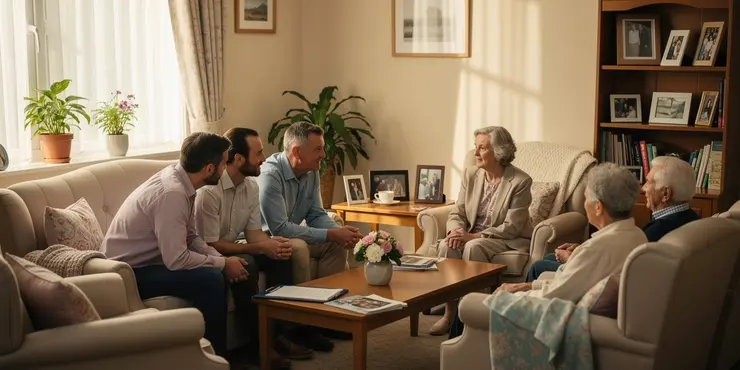
What should families consider when visiting a care home?
Relevance: 55%
-
What if I need urgent dental care?
Relevance: 53%
-
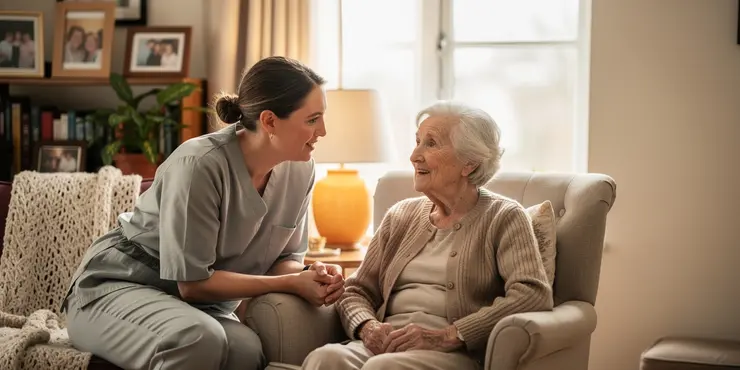
Dementia Care at Colten Care
Relevance: 53%
-
Do I need to return to Turkey for follow-up care?
Relevance: 51%
-
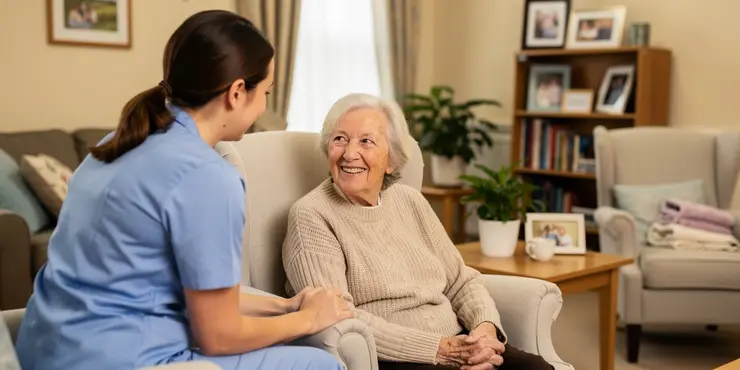
Do care homes provide medical care?
Relevance: 47%
-
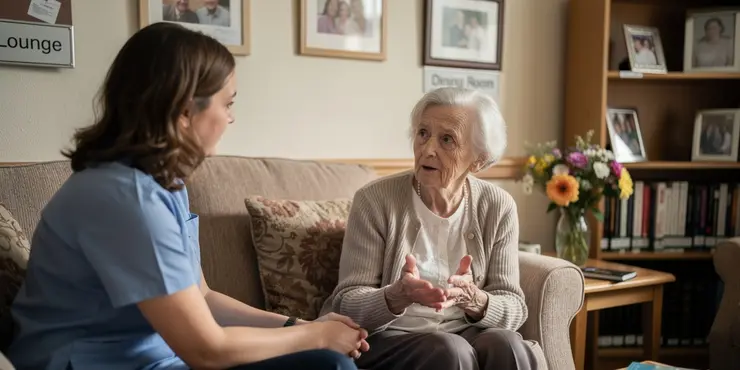
The role of care homes dedicated to caring for people living with dementia and memory loss
Relevance: 46%
-
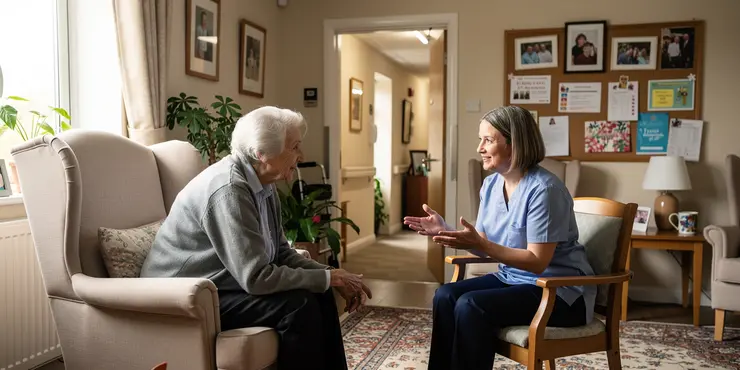
How is the quality of care regulated in care homes?
Relevance: 46%
-
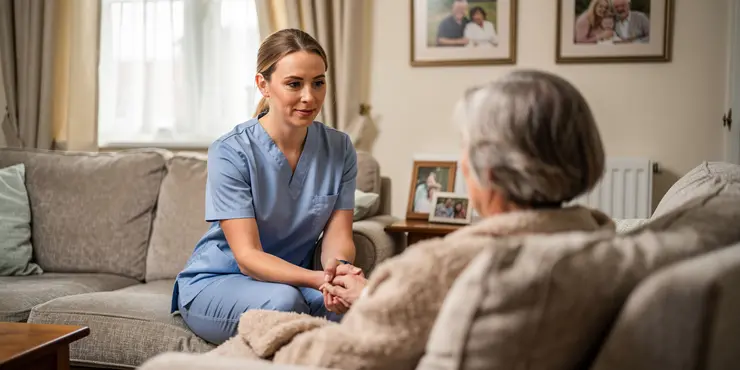
What is end of life care?
Relevance: 46%
-
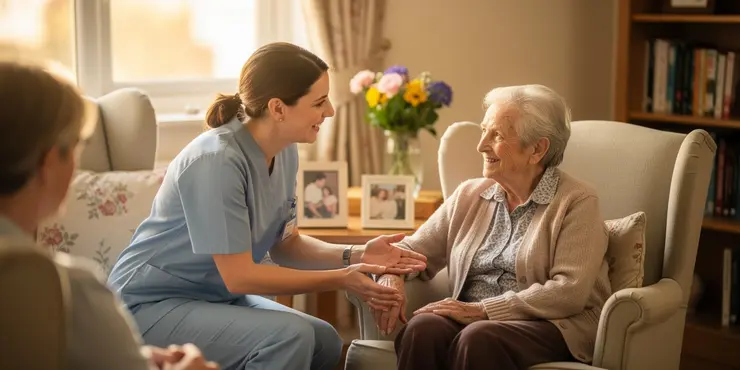
What are Care Homes?
Relevance: 45%
-
Do I need to be a registered patient to get emergency NHS dental care?
Relevance: 45%
-
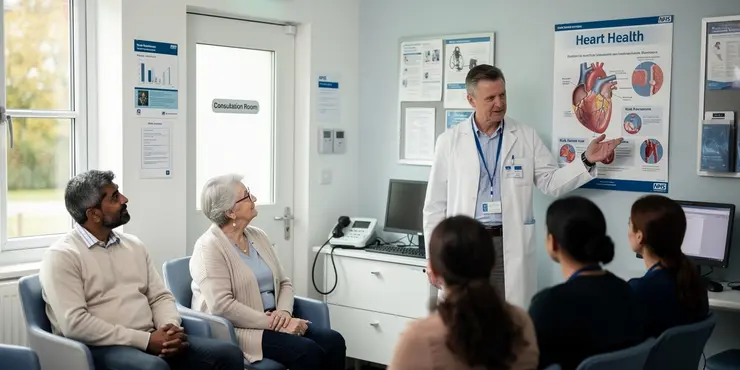
Do all patients need medication to prevent heart attacks and strokes?
Relevance: 45%
-
What is the role of Live In Care?
Relevance: 45%
-
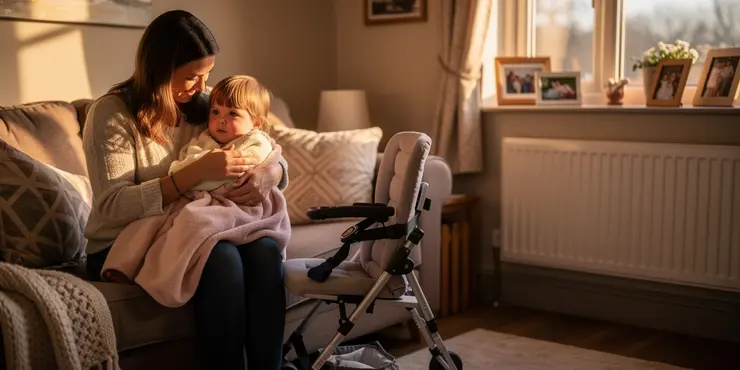
What support is available for families of individuals with PIMD?
Relevance: 44%
-
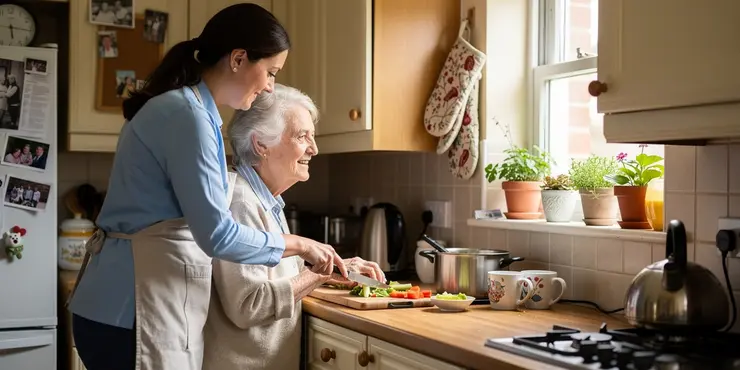
Is live-in care an alternative to nursing homes?
Relevance: 44%
-
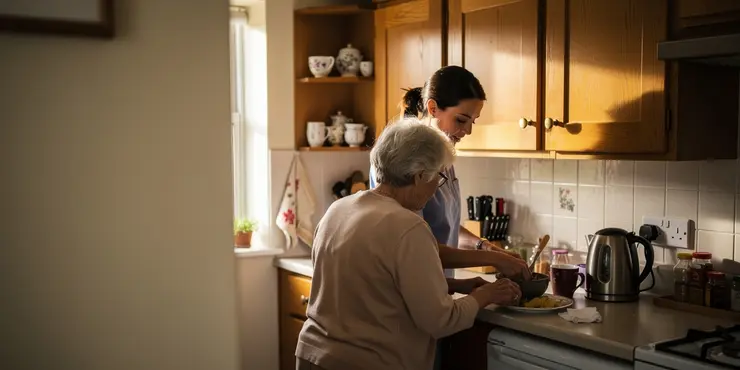
Can live-in care be customized?
Relevance: 44%
-
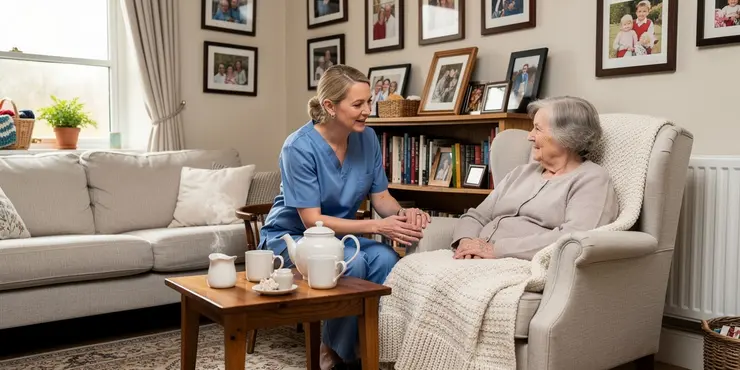
Can live-in care support individuals with dementia?
Relevance: 43%
-

Is postnatal depression preventable?
Relevance: 43%
-
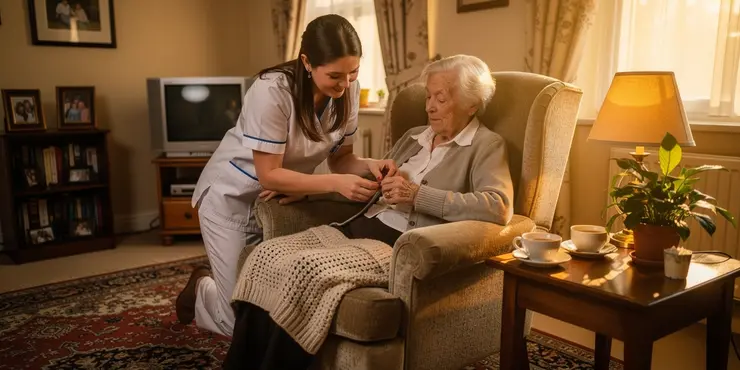
Who benefits from live-in care?
Relevance: 43%
-
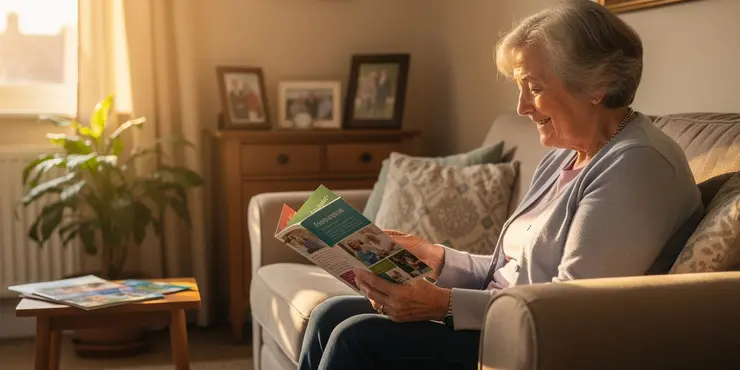
How can I choose the right care home?
Relevance: 42%
-
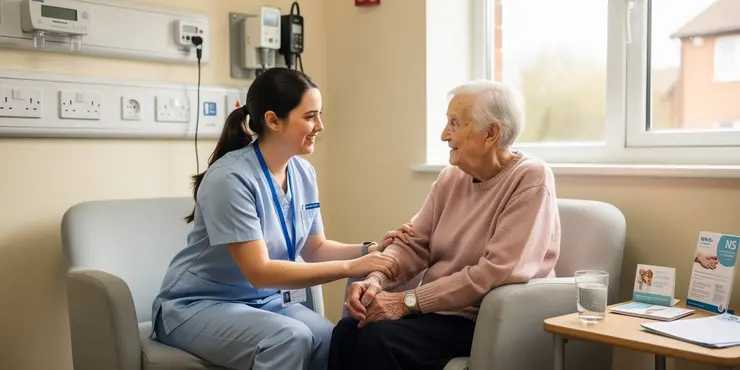
Dr Hilary Jones on Residential Care PART 2.
Relevance: 42%
-
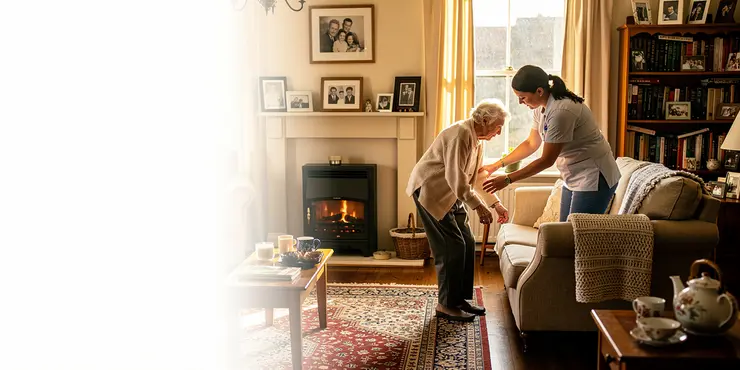
Does live-in care include medical services?
Relevance: 41%
-
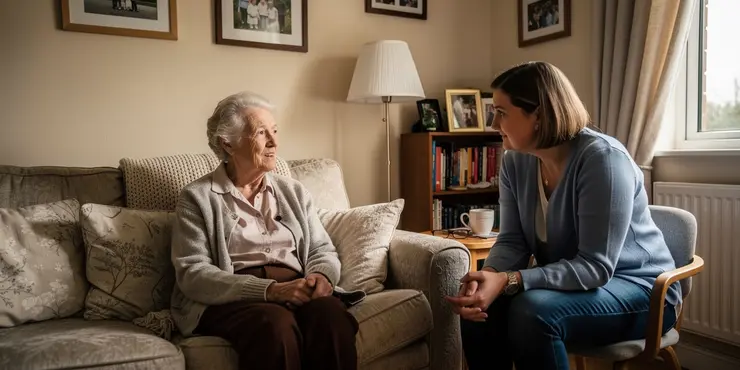
How can seniors access long-term care support?
Relevance: 41%
-
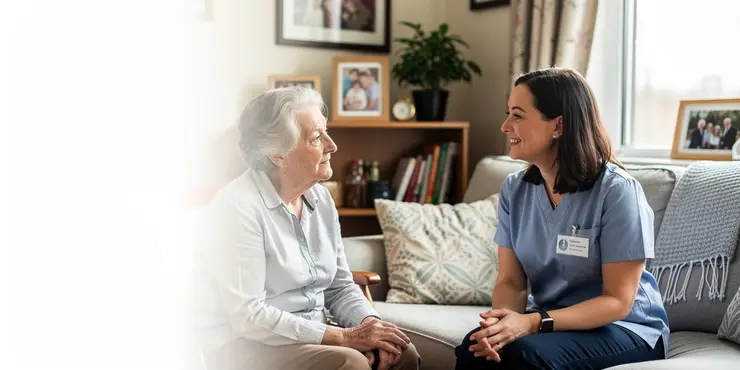
What are the visiting hours for care homes?
Relevance: 41%
-
Can children get free NHS dental care?
Relevance: 41%
-
Are activities provided for residents in care homes?
Relevance: 40%
-

Advancements in Mental Health Resources for Families
Relevance: 40%
-
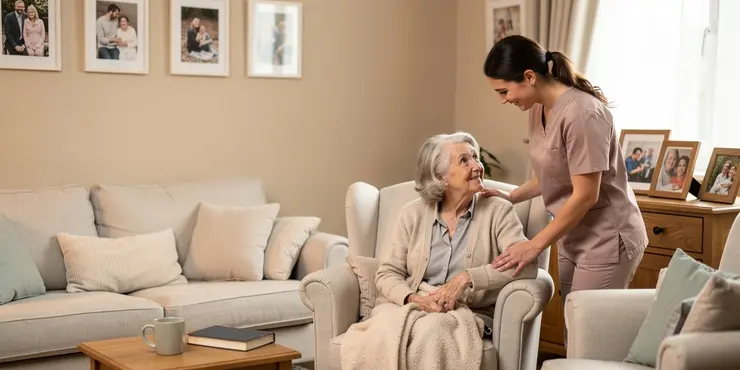
How does billing for live-in care work?
Relevance: 40%
-

Are there different types of care homes?
Relevance: 40%
-
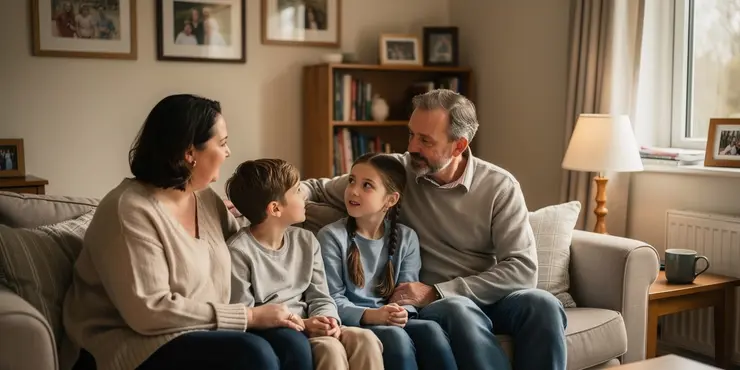
Managing Chronic Illness Within the Family
Relevance: 40%
-
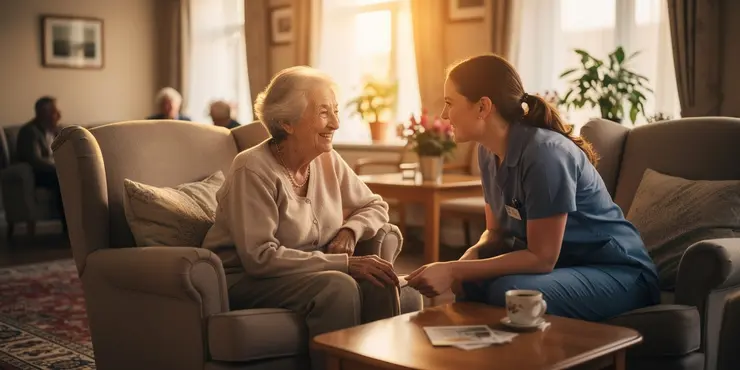
Who can live in a care home?
Relevance: 40%
-
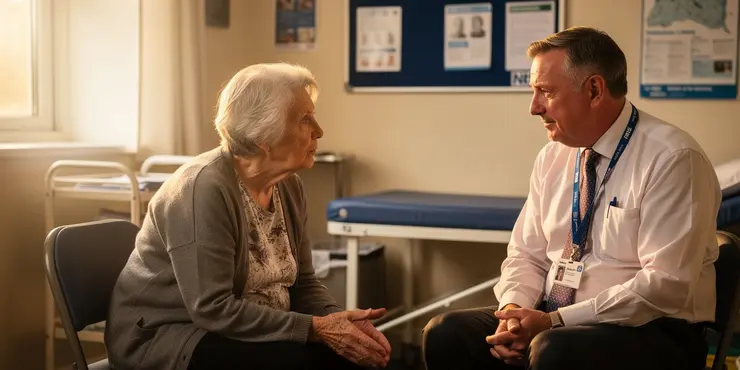
Dr Hilary Jones on Residential Care PART 1.
Relevance: 40%
Preventative Care: What Your Family Needs
Understanding Preventative Care
Preventative care refers to measures taken to prevent diseases, rather than treating them after they occur. This type of care is essential for maintaining the health and well-being of your family. It involves regular health check-ups, screenings, vaccinations, and adopting a healthy lifestyle. In the United Kingdom, the National Health Service (NHS) provides a comprehensive range of preventive services to help families stay healthy.
Regular Health Check-ups
One of the primary aspects of preventative care is regular health check-ups. These check-ups allow healthcare professionals to monitor and manage health conditions before they become serious. Routine visits to your GP can help identify early signs of illnesses such as diabetes, hypertension, and heart disease. It is also an opportunity to discuss any health concerns you might have and receive personalized advice on maintaining your family's health.
Screenings and Tests
Screenings are crucial in detecting diseases early, often before symptoms appear. The NHS offers various screening programs for different age groups. These include cervical screening for women, breast screening, and bowel cancer screening. Additionally, routine blood tests and other diagnostic procedures can help detect conditions like high cholesterol or thyroid issues, allowing for timely intervention and treatment.
Vaccinations
Vaccinations are an effective way to protect your family from infectious diseases. The UK vaccination schedule starts from infancy and continues into adulthood. Vaccinations such as the MMR (measles, mumps, and rubella), HPV (human papillomavirus), and seasonal flu vaccines play a critical role in preventing outbreaks of infectious diseases. Keeping up-to-date with the recommended vaccination schedule ensures that your family is protected against preventable illnesses.
Healthy Lifestyle Choices
Adopting a healthy lifestyle is fundamental to preventative care. A balanced diet rich in fruits, vegetables, whole grains, and lean proteins can significantly boost your family's immune system and overall health. Regular physical activity helps maintain a healthy weight and reduces the risk of chronic diseases. Encouraging good habits such as not smoking, limiting alcohol, and getting adequate sleep is also vital in promoting long-term health.
Mental Health and Well-being
Mental health is an essential component of preventive care. Regular mental health check-ins and access to mental health services can help manage stress, anxiety, and other mental health conditions. In the UK, various resources and support networks are available to help families maintain good mental health. Practicing mindfulness, staying connected with loved ones, and seeking professional help when necessary are crucial for maintaining mental well-being.
Conclusion
Preventative care is about taking proactive steps to ensure the long-term health and well-being of your family. By embracing regular health check-ups, screenings, vaccinations, healthy lifestyle choices, and attention to mental health, you can significantly reduce the risk of developing serious health conditions. Utilising the resources provided by the NHS and other health services in the United Kingdom can help your family stay healthy and thrive.
Preventative Care: What Your Family Needs
Understanding Preventative Care
Preventative care is about stopping diseases before they start. This type of care helps keep your family healthy. It includes regular doctor visits, health check-ups, vaccines, and healthy habits. In the UK, the NHS helps families stay healthy with these services.
Regular Health Check-ups
Going to the doctor regularly is very important. These visits let doctors catch health problems early, like diabetes or heart disease. You can also talk to your doctor about any health worries. They can give you advice to keep your family healthy.
Screenings and Tests
Screenings help find diseases early, often before you feel sick. The NHS offers different screenings for women and men. For example, there are tests for cervical cancer, breast cancer, and bowel cancer. Blood tests can find problems like high cholesterol. Getting these tests done means you can get help early if needed.
Vaccinations
Vaccinations protect you from diseases. In the UK, there is a plan for vaccines starting from when you are a baby. Vaccines like MMR (measles, mumps, and rubella) and the flu shot help stop the spread of diseases. Keeping up with vaccines is important to keep your family safe.
Healthy Lifestyle Choices
Choosing to live healthily is very important. Eating fruits, vegetables, and lean meats helps you feel good. Exercise keeps you at a healthy weight and stops some diseases. Good habits, like not smoking, drinking less alcohol, and getting enough sleep, help you stay healthy.
Mental Health and Well-being
Mental health is also important. Checking in on how you feel and talking to someone if you are stressed or anxious can help. In the UK, there are many services to help with mental health. Staying in touch with friends, practicing mindfulness, and getting help if you need it are ways to feel better mentally.
Conclusion
Preventative care means taking steps now to stay healthy later. Going to the doctor, getting screenings and vaccines, living a healthy lifestyle, and looking after your mental health can stop serious health problems. The NHS and other services in the UK can help your family stay well. Take advantage of these resources to help your family thrive.
Frequently Asked Questions
What is preventative care?
Preventative care involves measures taken to prevent diseases or injuries rather than curing them or treating their symptoms. This can include vaccinations, screenings, and healthy lifestyle choices.
Why is preventative care important for my family?
Preventative care is important as it helps detect potential health issues early on, reduces the risk of developing chronic diseases, and promotes overall well-being.
What are some common preventative care services?
Common preventative care services include immunisations, routine screenings like blood pressure and cholesterol checks, cancer screenings, and counselling on healthy lifestyle choices.
How often should my family visit the GP for preventative care?
It is generally recommended to have annual health check-ups. However, the frequency can vary based on age, health conditions, and specific risk factors. Always consult with your GP for personalised advice.
What vaccinations are recommended for children in the UK?
The NHS recommends vaccinations for diseases like measles, mumps, rubella (MMR), diphtheria, tetanus, whooping cough, and polio, among others. These are typically given at various stages from infancy through adolescence.
Can adults receive preventative vaccinations?
Yes, adults can receive vaccinations for conditions like influenza, pneumococcal disease, and shingles, as well as boosters for tetanus and diphtheria.
What are the benefits of regular health screenings?
Regular health screenings can identify risk factors and early signs of diseases such as hypertension, diabetes, and cancer. Early detection can lead to more effective treatment and better health outcomes.
What lifestyle changes can help with preventative care?
Healthy lifestyle changes include maintaining a balanced diet, regular exercise, getting sufficient sleep, avoiding smoking and excessive alcohol consumption, and managing stress.
How important is dental care in preventative health?
Dental care is crucial as it helps prevent oral diseases like cavities and gum disease, which can affect overall health. Regular dental check-ups and good oral hygiene are essential.
Does the NHS provide support for preventative care?
Yes, the NHS offers various preventative care services including immunisations, screenings, and health advice. Many of these services are provided free of charge.
What is a health check and what does it include?
A health check is a routine examination to assess overall health. It typically includes measurements of blood pressure, cholesterol levels, weight, and may also involve blood tests and discussions about lifestyle and family history.
At what age should children start receiving preventative care?
Preventative care should begin from birth, with vaccinations and screenings starting in infancy and continuing throughout childhood and adolescence.
How can I keep track of my family's preventative care needs?
Keeping a health diary, using reminder apps, and scheduling regular appointments with your GP can help. The NHS also provides a personal health record (Red Book) for children.
What is the role of diet and nutrition in preventative care?
A healthy, balanced diet can prevent a range of health issues including obesity, heart disease, diabetes, and certain cancers. Eating a variety of fruits, vegetables, whole grains, and lean proteins is key.
What mental health services are available for preventative care in the UK?
The NHS provides various mental health services including counselling, cognitive behavioural therapy (CBT), and support groups. Early intervention and regular mental health check-ups are crucial for preventing more severe conditions.
What is preventative care?
Preventative care is about staying healthy. It helps stop people from getting sick. You visit the doctor even if you feel well.
Here are things you can do:
- Go to the doctor for check-ups.
- Get vaccines to protect you from diseases.
- Eat healthy food and exercise.
- Brush your teeth every day.
Doing these things can help you stay well. It's like taking care of a car, so it runs smoothly!
If you need help reading, you can:
- Use audiobooks to listen to the text.
- Ask someone to read with you.
- Use apps that read text out loud.
Remember, it's good to ask questions if you don't understand something. People are there to help you!
Preventative care means doing things to stop people from getting sick or hurt. It is better to stop problems before they start. This can include getting shots, checking for health problems early, and making good choices for health like eating well and exercising.
Why is it important to take care of my family's health?
Taking care of your family's health before they get sick is very important. This is called preventative care.
Here are some reasons why it helps:
- Stops sickness: Going to the doctor for check-ups can stop diseases before they start.
- Saves money: It's cheaper to find health problems early than to wait until they get worse.
- Keeps everyone healthy: Regular check-ups help make sure your family stays strong and healthy.
Some things you can do:
- Visit the doctor for check-ups.
- Eat healthy foods.
- Stay active by playing or exercising.
- Make sure everyone washes their hands.
Remember, taking care of your health now can help you feel better in the future. Using a calendar to plan doctor visits or setting reminders on your phone can be a helpful tool.
Going to the doctor for check-ups is important. It helps find health problems early. This means you can get help before problems get big. It also helps you stay healthy and feel good.
What are some basic health check-ups?
Here are some ways to stay healthy:
- Visit the doctor for regular check-ups.
- Get shots to prevent diseases.
- Go to the dentist to keep your teeth healthy.
- Eat healthy foods and exercise often.
- Ask a grown-up for help if needed.
Use pictures or charts to help understand better.
Preventing health problems is important. Here are some things that help keep us healthy:
1. **Immunisations**: These are special shots that stop you from getting sick.
2. **Blood Pressure and Cholesterol Checks**: These checks see how your heart is doing.
3. **Cancer Screenings**: These tests look for signs of cancer early on.
4. **Counselling for Healthy Choices**: Talking to someone about eating healthy and doing exercise.
Remember, tools like picture charts and reminder apps on your phone can help you keep track of these important health checks.
How often should my family see the doctor for check-ups?
It's good to visit the doctor to stay healthy, even if you feel well.
Your family should see the doctor once a year for a check-up. This helps find any problems early.
Sometimes, the doctor might want to see you more often. They will tell you if this is needed.
Use a calendar or set reminders on your phone to remember your doctor's visit.
It is a good idea to visit the doctor every year for a health check-up. But how often you go can change, depending on how old you are, any health problems you have, or other things that might make you sick. Always talk to your doctor for advice that fits you best.
What medicines help keep children healthy in the UK?
Here is a guide for parents and carers:
- Vaccinations: These are special medicines that stop you from getting sick.
- Doctors: Visit your doctor to learn which vaccinations your child needs.
- Health Booklet: Keep a record of all the vaccinations your child gets. This is often called a 'Red Book'.
Using tools like pictures and calendars can help remember vaccination dates. You can also use reminder apps on your phone.
The NHS says it is important to get vaccines. Vaccines help stop you from getting sick. They protect you from diseases like measles, mumps, rubella (MMR), diphtheria, tetanus, whooping cough, and polio.
These vaccines are given at different ages. Babies, children, and teenagers all need them to stay healthy.
It can help to use a calendar or a reminder app to keep track of when you need vaccines. You can also ask an adult to help you remember.
Can grown-ups get shots to stop them from getting sick?
Yes, grown-ups can get shots to help keep them from getting sick. These are called vaccines. They help your body stay strong and stop you from catching some diseases.
It is good to talk to a doctor or nurse. They can tell you which shots you might need.
You can also use picture cards or storybooks to learn about why shots are important.
Yes, grown-ups can get shots to stop them from getting sick. They can get shots for flu, lung sickness, and shingles. They can also get extra shots to keep them safe from tetanus and diphtheria.
Why is it good to go to health check-ups often?
Going to the doctor for check-ups helps you stay healthy. The doctor checks to make sure everything is okay. It can help find problems early, so you can feel better faster.
Here are some tools that might help:
- Ask a friend or family member to go with you to the doctor.
- Write down any questions you have before the check-up.
- Use a calendar to remember your next check-up date.
Going to the doctor for regular check-ups can help find problems early. The doctor can see if you might get sick with things like high blood pressure, diabetes, or cancer. If we find out about these health issues early, doctors can treat them better, and you can stay healthier.
How can you live healthier to stop getting sick?
Living healthy helps you not get sick. Here are some easy ways:
- Eat Good Food: Eat fruits, veggies, and whole grains. Try to eat less junk food.
- Move Your Body: Play outside, walk, or do other fun activities every day.
- Sleep Well: Go to bed at the same time and get plenty of sleep each night.
- Drink Water: Drink lots of water instead of sugary drinks.
- Visit the Doctor: Go for check-ups to make sure you are healthy.
Doing these things can help you feel strong and stay healthy. If you need help, ask someone you trust or use an app to remind you.
To stay healthy, you can make some changes. Eat different kinds of foods, exercise, try to sleep well, do not smoke, don't drink too much alcohol, and try to stay calm and relaxed.
Why is taking care of your teeth important for staying healthy?
Taking care of your teeth is very important. It stops problems like holes in your teeth (cavities) and sore gums. These problems can make you sick. Going to the dentist often and keeping your teeth clean are important.
Does the NHS help with staying healthy?
The NHS helps people stay healthy and stop them getting sick. Here are some ways they can help you:
- Check-ups: You can see a doctor or nurse for regular check-ups to make sure you are healthy.
- Vaccines: The NHS gives important vaccines to stop diseases.
- Advice: You can get advice on eating healthy food and staying active.
- Help to stop smoking: The NHS can help you if you want to stop smoking.
If you want to know more, you can visit the NHS website or talk to your doctor.
Yes, the NHS gives different types of care to keep you healthy. They can give you shots to stop you getting sick, check-ups to find problems early, and tips on staying healthy. Many of these help are free.
What is a health check and what is in it?
A health check is like a regular check-up to see how healthy you are. During a health check, doctors often measure things like how fast your heart beats, how much you weigh, and how much fat is in your blood. They might also take some of your blood to test it. Sometimes, you will talk about what you eat, how much you exercise, and your family's health.
When should kids start seeing a doctor to stay healthy?
Kids should visit the doctor to keep them healthy. This helps stop them from getting sick. You can start taking your child when they are a baby.
To help, bring someone to go with you. They can take notes or help ask questions. You can also ask the doctor to use simple words.
Taking care of your health starts when you are a baby. Babies need to get shots to keep them from getting sick. They also need check-ups at the doctor. This should keep going as they grow up. Children and teenagers need to visit the doctor too.
How can I keep track of my family's health needs?
It is important to keep track of your family’s health. You can use a calendar to mark doctor visits and check-ups.
You can also use a notebook to write down health information or use a phone app to help you remember appointments.
Ask your doctor what check-ups your family needs. Write them down so you don't forget.
Always keep a list of your family's medicines and allergies.
Remember to talk to your family about how to stay healthy.
Writing down how you feel, using reminder apps, and visiting your doctor often can help. The NHS gives children a special book called a Red Book to keep track of their health.
How do food and eating well help keep us healthy?
Eating healthy food helps us stay strong and feel good. It's important to eat a mix of fruits, vegetables, whole grains, and proteins like meat or beans. Drinking plenty of water is also important. This helps our bodies work well and can prevent sickness.
Try eating different foods to get all the vitamins and minerals you need. Ask a grown-up or use helpful tools like picture charts to learn about healthy foods.
Remember, eating well every day is a way to look after your body and stay healthy!
Eating healthy food is important. It can stop problems like being very overweight, heart problems, diabetes, and some types of cancer. You should eat different types of foods like fruits, vegetables, whole grains, and lean meats.
What mental health help can I get to stay healthy in the UK?
If you want to keep your mind healthy, there are places in the UK that can help. These are called mental health services.
You can try talking to a doctor. They can tell you about groups that help people feel better. If you feel sad or worried a lot, they can help you feel better.
There are apps for your phone that can help your mental health. Try Calm or Headspace. They can help you feel relaxed.
You might like to keep a diary. Write down how you feel every day. This can help you understand your feelings better.
The NHS offers different ways to help with mental health. They have talking sessions called counselling, they teach ways to change thoughts and feelings called cognitive behavioural therapy (CBT), and they have groups where people can support each other. Getting help early and having regular check-ups can stop bigger problems from happening.
Useful Links
This website offers general information and is not a substitute for professional advice.
Always seek guidance from qualified professionals.
If you have any medical concerns or need urgent help, contact a healthcare professional or emergency services immediately.
Some of this content was generated with AI assistance. We’ve done our best to keep it accurate, helpful, and human-friendly.
- Ergsy carfully checks the information in the videos we provide here.
- Videos shown by Youtube after a video has completed, have NOT been reviewed by ERGSY.
- To view, click the arrow in centre of video.
- Most of the videos you find here will have subtitles and/or closed captions available.
- You may need to turn these on, and choose your preferred language.
- Go to the video you'd like to watch.
- If closed captions (CC) are available, settings will be visible on the bottom right of the video player.
- To turn on Captions, click settings .
- To turn off Captions, click settings again.
More Items From Ergsy search
-

Preventative Care: What Your Family Needs
Relevance: 100%
-

Child Care Proceedings | Family Law
Relevance: 63%
-

How can I plan for future care needs?
Relevance: 63%
-

What happens if a resident's care needs change?
Relevance: 60%
-

What should families look for in a live-in care agency?
Relevance: 59%
-

Are dietary needs accommodated in care homes?
Relevance: 58%
-

Diabetes Care - Preventing Amputations
Relevance: 57%
-

Is live-in care available for short-term needs?
Relevance: 57%
-

Can family members be involved in the care process on a virtual ward?
Relevance: 56%
-

What should families consider when visiting a care home?
Relevance: 55%
-
What if I need urgent dental care?
Relevance: 53%
-

Dementia Care at Colten Care
Relevance: 53%
-
Do I need to return to Turkey for follow-up care?
Relevance: 51%
-

Do care homes provide medical care?
Relevance: 47%
-

The role of care homes dedicated to caring for people living with dementia and memory loss
Relevance: 46%
-

How is the quality of care regulated in care homes?
Relevance: 46%
-

What is end of life care?
Relevance: 46%
-

What are Care Homes?
Relevance: 45%
-
Do I need to be a registered patient to get emergency NHS dental care?
Relevance: 45%
-

Do all patients need medication to prevent heart attacks and strokes?
Relevance: 45%
-
What is the role of Live In Care?
Relevance: 45%
-

What support is available for families of individuals with PIMD?
Relevance: 44%
-

Is live-in care an alternative to nursing homes?
Relevance: 44%
-

Can live-in care be customized?
Relevance: 44%
-

Can live-in care support individuals with dementia?
Relevance: 43%
-

Is postnatal depression preventable?
Relevance: 43%
-

Who benefits from live-in care?
Relevance: 43%
-

How can I choose the right care home?
Relevance: 42%
-

Dr Hilary Jones on Residential Care PART 2.
Relevance: 42%
-

Does live-in care include medical services?
Relevance: 41%
-

How can seniors access long-term care support?
Relevance: 41%
-

What are the visiting hours for care homes?
Relevance: 41%
-
Can children get free NHS dental care?
Relevance: 41%
-
Are activities provided for residents in care homes?
Relevance: 40%
-

Advancements in Mental Health Resources for Families
Relevance: 40%
-

How does billing for live-in care work?
Relevance: 40%
-

Are there different types of care homes?
Relevance: 40%
-

Managing Chronic Illness Within the Family
Relevance: 40%
-

Who can live in a care home?
Relevance: 40%
-

Dr Hilary Jones on Residential Care PART 1.
Relevance: 40%


